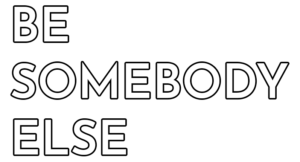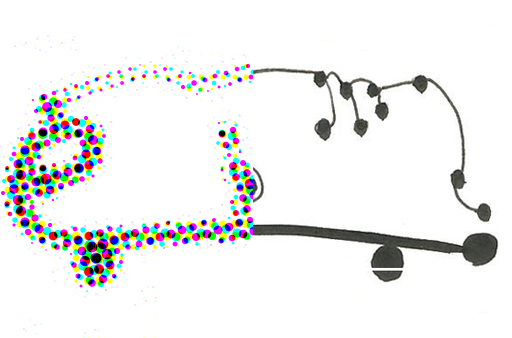
HESITATION / PANIC
People who have been traumatised might tolerate things well. Their instinct for how long to stick with a difficulty or how much to absorb its effects (often complication, anxiety and irritation) may be just about right. On the other hand they are likely to have tolerance problems. They’ll panic and have faith, hope and trust in nobody and nothing, or in anyone and everything.
Faith, hope and trust
Someone once wrote to me: ‘faith, hope, trust’. They weren’t writing about anything in particular, just offering me three words. These are three words that traumatised people might long to invest thought and feeling in. To have faith, to hope and to have trust. Whatever’s happened to you I imagine it’s messed with your sense of these qualities, ones that are fundamental to relationships. Without faith, hope and trust, what’s a relationship?
Try having no faith, hope or trust
Yes, try it. It’s almost impossible, but what emerges is still worth embracing because of what might emerge from that faulty, incomplete but nonetheless un-clinging place. To have faith, hope and trust is to cling on. Imre Hermann writes about a ‘clinging’ instinct that involves the kind of PANIC that Panksepp writes about and his version of attachment theory gives us clues about how to find faith, hope and trust.
You need to find faith, hope and trust
Faith, hope and trust need to develop out of a sense of need, not to be served up on a plate. Faith, hope and trust served up on a plate usually ends up tasting awful. So after you try to have no faith, hope and trust see what cooks up. You are far less likely to be disappointed and PANIC.
Disappointment and tolerance
Trusting a sense of faith in someone or something can lead to the end of hope, not the beginning. Hopelessness usually arises out of idealisation and over-valuation (or other ways of valuing, not least undervaluing, which is different from not valuing.
Refuse faith, hope and trust
Maybe the best you can do is to refuse faith, hope and trust until you find that refusal leads to you being offered something else. The pain that comes from losing these qualities, from feeling abandoned or let down is something a traumatised person has already experienced – radically. You don’t want it to happen again.
What else?
You don’t know until it is there. But you will know that whatever arrives, maybe the possibility of a relationship or some other form of security feels real. Refusing faith, hope and trust will make reality dawn on you. At some point you step into something like daylight. This is real. Whatever’s real you can do something with – anything unreal will amount to nothing. Remember, feelings are real. Words do things, as AJ Austin wrote. Faith, hope and trust are keys to living well.


